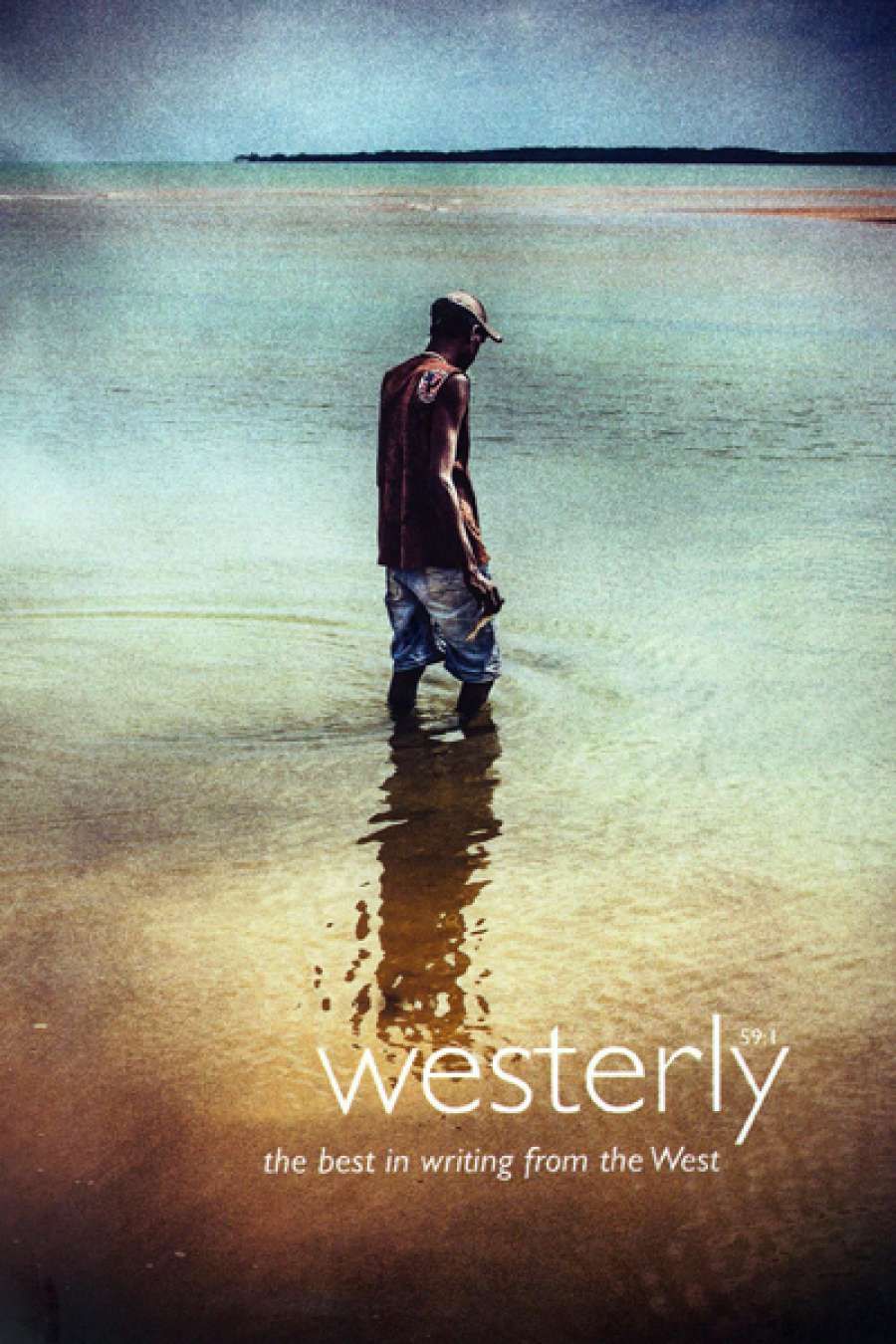
- Free Article: No
- Contents Category: Journals
- Review Article: Yes
- Online Only: No
- Custom Highlight Text:
Voices of the dispossessed appropriate the narratives in the current issue of Westerly. The fiction in this issue is the strongest section, largely due to the originality and diversity of the writing. M.T. O’Byrne’s magic-realist short story, ‘The Day Before Christmas Island’, introduces the voice of the refugee. Reminiscent of Life of Pi (2001), the narrator and Thommo ‘pull a boy from the sea’, only to find that his siblings, at the end of a long fishing line, appear in the form of a shark and a whale and want to board their boat. Zdravka Evtimova’s ‘Happiness is a Simple Thing’ presents the retribution of the Oshav men who want ‘blood for blood’, while Shokoofeh Azar’s ‘The Woman Who Went to Stand There’ – translated from Persian – is the devastating story of a woman who waits a lifetime at the Somayyeh intersection to elope with her lover. Like Miss Havisham, her demise is charted in her decaying appearance. Finally, Mark O’Flynn’s ‘Turning the Other Cheek’ is a standout for its almost Nabokovian unreliable narration of a father who terrorises his murdering son.
- Book 1 Title: Westerly, vol. 59, no. 1
- Book 1 Biblio: Westerly Centre, $29.95 pb, 205 pp
Of the essays, Rohan Wilson’s, ‘Anxiety of Reference in That Deadman Dance’ is an important critique of Kim Scott’s novel, for its focus on fiction and history as prime preoccupations. Jane Vaughan’s essay on John Tranter’s ‘The Anaglyph’ and its tribute to John Ashbery is thorough, and Nicholas Walton-Healey’s photographic essay is, for the most part, effective. However, I am not convinced by his argument for including a series of quotations. The two reviews of Australian fiction and Australian poetry anthologies cover a lot of ground but are largely positive about everything. Gao Pengcheng’s poems, translated by Ouyang Yu, are the centrepieces of a brilliant section of poetry, exploring memory and absence. This issue of Westerly prioritises the past and the way it functions in the present.


Comments powered by CComment